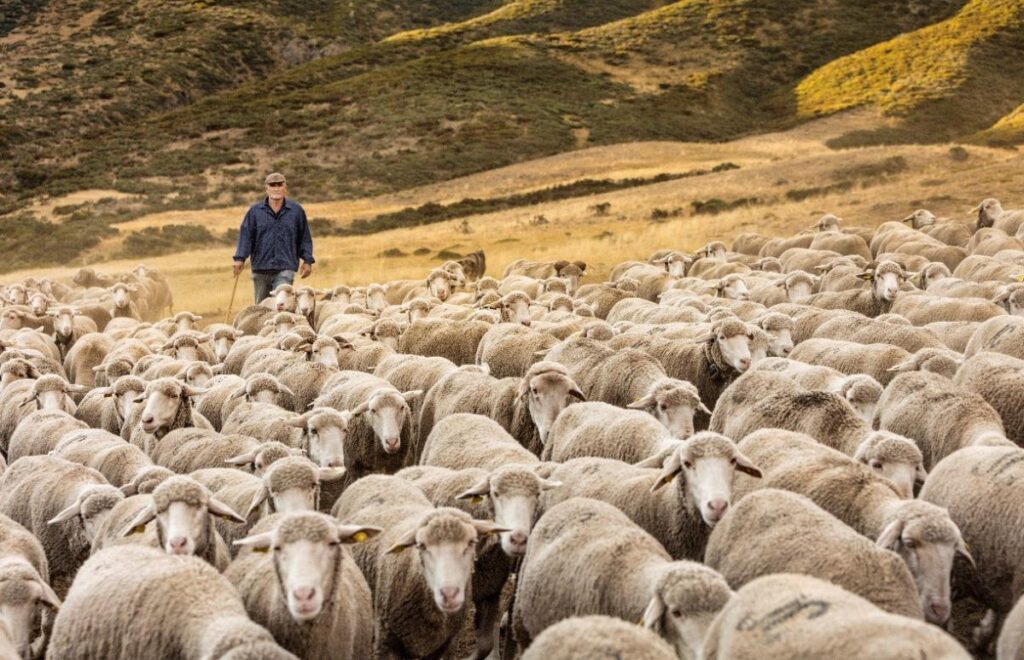The forest fires that are affecting different areas of Spain this summer are severely affecting nature, villages, and those who live there. In this painful context, INTEROVIC, the Interprofessional Agri-Food Organization for Sheep and Goats, emphasizes the importance of extensive grazing and transhumance, which once again demonstrate their value as silent allies in protecting the land and reducing the risk of fires spreading.

NTEROVIC emphasizes that extensive livestock farming and transhumance not only generate quality food and sustain life in rural areas, but also play an essential role in fire prevention and environmental protection, since vegetation is reduced where livestock grazes, and with it, the risk of fires spreading. In this sense, Raúl Muñiz, president of the organization, states that “eating lamb is much more than a culinary choice: it is a direct way of supporting the farmers who keep pastoralism and transhumance alive. Each lamb dish helps sustain a livestock farming model that protects the land, prevents fires, maintains population in rural areas, and preserves traditions that are part of our cultural identity. Without consumption, there are no farmers; and without farmers, we lose an essential tool for caring for our landscapes and our future.”
One of the hardest hit areas these days is the Picos de Europa region, where transhumant shepherd José Manuel Sánchez Miguel, from Huertas de Ánimas (Trujillo), has been forced to bring his 1,700 sheep down the mountain due to the threat of fire. Now, the flock remains in Valverde de la Sierra (León), naturally clearing the surrounding areas of the houses and creating a safety belt that helps protect the residents. José Manuel is in his third consecutive summer in the Picos de Europa, after walking more than 600 kilometers with his native Merino sheep through the historic Cañada Leonesa Occidental. “The fire surrounded us, and we had no choice but to bring the sheep back to the village. Now, at least, they are helping to clear the surrounding areas so that the flames don’t reach the houses,” he explains.
New march toward Extremadura
The situation is complicated for the area’s livestock farmers, who have requested aid to feed their animals after seeing how the fire devoured the pastures. “Every summer is difficult, but this year is especially so. Sheep are the best tool we have to keep the countryside clean and safe,” the shepherd adds. Despite the harshness of the situation, José Manuel maintains his plan to remain in the area until early October, when he will once again begin his journey toward Extremadura: “The intention is to stay until then, as long as the fire doesn’t destroy everything and it’s possible to hold out here.”
The sector also emphasizes that it’s not enough to remember shepherds and ranchers only in times of disaster: prevention and care of the land are tasks that are carried out throughout the year and require both the sensitivity of the authorities and the support of consumers, whose purchasing decisions are key to keeping this essential model alive for rural areas and the environment.
As part of its European campaign “Celebrate the Everyday with Lamb,” INTEROVIC highlights the importance of extensive livestock farming and transhumance and their multiple environmental, sociocultural, territorial, and economic benefits: natural seed transport, soil fertilization, reduction of dry matter that acts as forest fuel, revitalization of the rural economy, and preservation of family farming as a model of sustainability.
You might also be interested in
- Los últimos pastores trashumantes
- La bolsa de la Escuela de Pastores de Castilla – La Mancha cuenta con más de 200 profesionales
- Euskadi sigue formando pastores de ovino y caprino para garantizar el relevo generacional
















